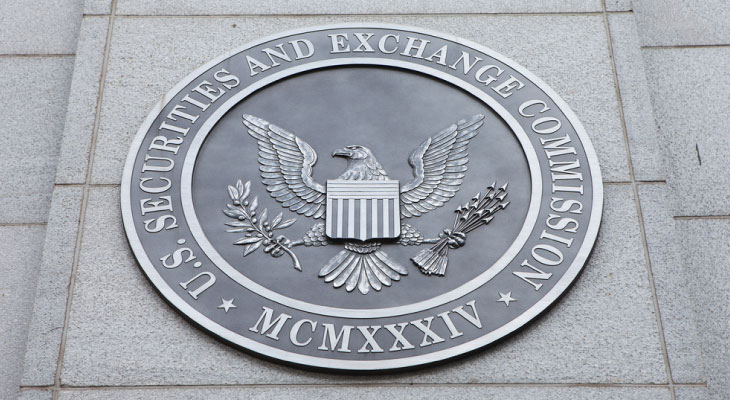The Securities and Exchange Commission, or SEC, is the federal regulatory body tasked with overseeing the American securities markets.
Role of the Securities and Exchange Commission
The Securities and Exchange Commission has a wide variety of roles in the US securities markets, which can be summarized under three official mandates: the protection of investors, the maintenance of fair and orderly capital markets and the facilitation of capital formation.
To meet these mandates they investigate and prosecute securities fraud, maintains public disclosure regulations and monitors corporate takeover actions.
Any securities or security dealers, including asset managers, brokers and advisory firms, that operate on an interstate level fall under the purview of the commission.
Organization of the SEC
The Securities and Exchange Commission is run by 5 commissioners who are appointed by the president for 5 year terms, including one of the 5 who is designated as the chairman.
The SEC itself is divided into 5 divisions that oversee its various roles in the US securities market.
• Corporate Finance: Oversees the public disclosure of information relevant to investors.
• Enforcement: Enforces the SEC’s regulations through investigations, administrative proceeding and civil suits.
• Investment Management: Regulates insurance products and investment advisors and companies that are registered federally.
• Economic Analysis and Risk Analysis: Uses data analytics and financial economics to support the SEC’s mandates.
• Markets and Trading: Creates and maintains the regulations for orderly, efficient and fair securities markets.
SEC Enforcement
The Securities and Exchange Commission is a civilian organization and does not have the authority to conduct criminal prosecutions. The SEC uses civil lawsuits and administrative injunctions to control access to markets for individuals and financial institutions, reorganize the corporate structure and internal workings of financial institutions and extract payment as damages for investors, financial institutions and the state.
The SEC will work in conjunction with criminal investigations, but these are separate efforts that use the traditional legal system to prosecute criminal breaches and enforce punishments according to the criminal code.
SEC Whistleblower Regulations
Securities and Exchange Commission whistleblower regulations are a relatively new addition to the organization. These regulations oversee the handling of whistleblower cases in SEC investigations, including the innovative whistleblower incentive structure.
Under this structure, SEC whistleblowers are eligible to receive from 10% to 30% of any sanctions resulting from a $1 million or more prosecution based on their testimony.
The SEC whistleblower compensation scheme is considered to be highly successful, and has led to an increase in the number and scope of high-profile prosecutions of financial malfeasance.
Final Thoughts
The Securities and Exchange Commission is a major part of the American securities landscape, and is one of the main reasons that America remains one of the most popular destinations for companies, financial services firms, securities offerings and investors.
It is important for traders to understand how their regulations shape the landscape of America’s securities markets, as well as keeping abreast of securities rulings that are relevant to their trading strategies and favored markets.
In addition, many event-driven trading strategies are based wholly on in part on SEC investigations and rulings, as these can have a substantial impact on the price of affected securities.


